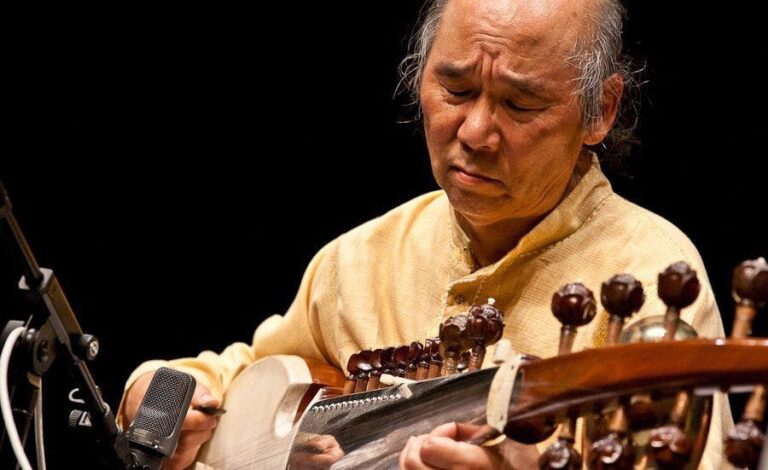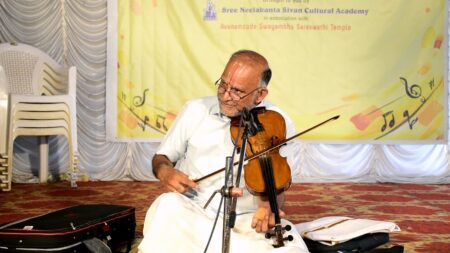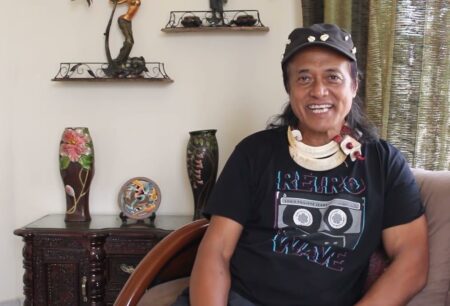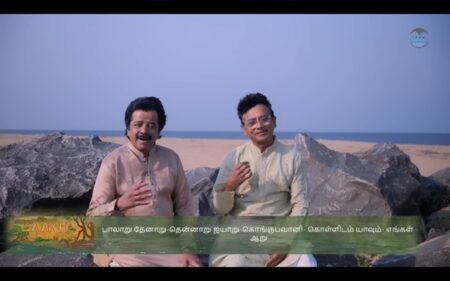Featuring artists of different cultures, the Cross Culture Concert Series organised by SciArtsRUs celebrates cultural diversity and acceptance.
A surprising slice of Bangladeshi music came from the septuagenarian towards the end of his sarod concert. And sounded novel in more ways than one. What’s more, Steve Oda capped the piece with a refreshing dash of tunes from Far-East Asia. After all, the instrumental recital was part of a series celebrating cross-culture differences.
“This is my very own improvisation. You will be hearing it for the first time,” the 74-year-old maestro did say ahead of the item. Michael Lewis of the same generation accompanied Steve on the tabla, further enriching the digital event a US-based cultural forum held last weekend.
With Steve’s wife and partner Pushpa Oda strumming the pitch-laying tanpura, the February 13 programme marked yet another milestone in the 15-month-old profile of SciArtsRUs founded in California. The Hindustani classical session studded the non-government organisation’s ongoing series named ‘Cross Culture Concerts: Celebrating Our Differences’, winning no less than 1,600 live audiences on Facebook.
Steve began with raga Durgeshwari. Once the introductory aalap was over, Michael joined in by playing to two rhythmic cycles in succession. First, the 16-beat teen taal and then a jhap of 10 beats. At a speedier tempo subsequently, the piece returned to teen taal. Steve played, with ease, the smooth slide notes — called meend, which is central to playing the sarod.
The twain does meet
Raga Mand was the palette for the second session. Then came the Bangladeshi strains. It was here, Steve improvised the strokes with a Japanese piece of music. The ending piece was in Sindhu Bhairavi, a morning raga usually slotted towards the end of a north Indian concert.
On his part, Michael excelled in synchronising his tabla to the plucks on the sarod. Certain fast strokes he played won special appreciation.
The 25-string sarod is a lute-like Indian instrument crafted on a single piece of wood. The twin-drum tabla also traces its origin from the subcontinent. Even so, all the artistes at the SciArtsRU event hailed from another part of the globe.
Steve, by birth, is a Canadian of Japanese ancestry. His passion for music led him to formal training in the art at the age of seven. Initially, he learned to play the slide guitar and then its jazz variety. Years down the career, Steve discovered his love for Indian music, prompting him to pursue the sarod. The Toronto-born artiste lives in San Rafael in the North Bay Region of the San Francisco Bay Area.
As for Michael, he is one of the America’s finest tabla players. The percussionist started his career from tabla legend Allah Rakha. He later underwent training from the ustad’s son Zakir Hussain.
SciArtsRUs founder Ranjini Ramachander Kaushik said the cross-culture series sought to appreciate the efforts put by artistes in practising music from different cultures. “This series will celebrate the differences amongst all cultures and explore diversity and acceptance,” she said. “We hope to send a positive message to our audience during these rather turbulent times defined by Covid-19.”
An impressive line-up
The series began last month. Its global launch on January 23 was presided by Simi Valley Mayor Keith Mashburn. The function saw popular Sai sisters Kiran and Nivi exploring the meeting places of Carnatic and Western music.
Dignitaries across continents attended the opening edition. They included Carnatic music educator-researcher Balraj Balasubrahmanyan of Wesleyan University, musician-composer Ron Wasserman, Indonesian film-scorer Franki Raden, Ghanian Afro Rock band Osibisa’s lead singer-guitarist Gregg Kofi Brown (from London) and UCLA ethnomusicology percussionist Professor Abhiman Kaushal.
The series will continue throughout this year, says Ranjini. “We are inviting eminent Carnatic and Hindustani artists to explore genres outside their comfort zone to spread the message of cultural harmony,” she adds.
SciArtsRU seeks to also promote awareness on science through educational opportunities, community outreach programmes and events.
(With inputs from Ananthapathmanabhan)




